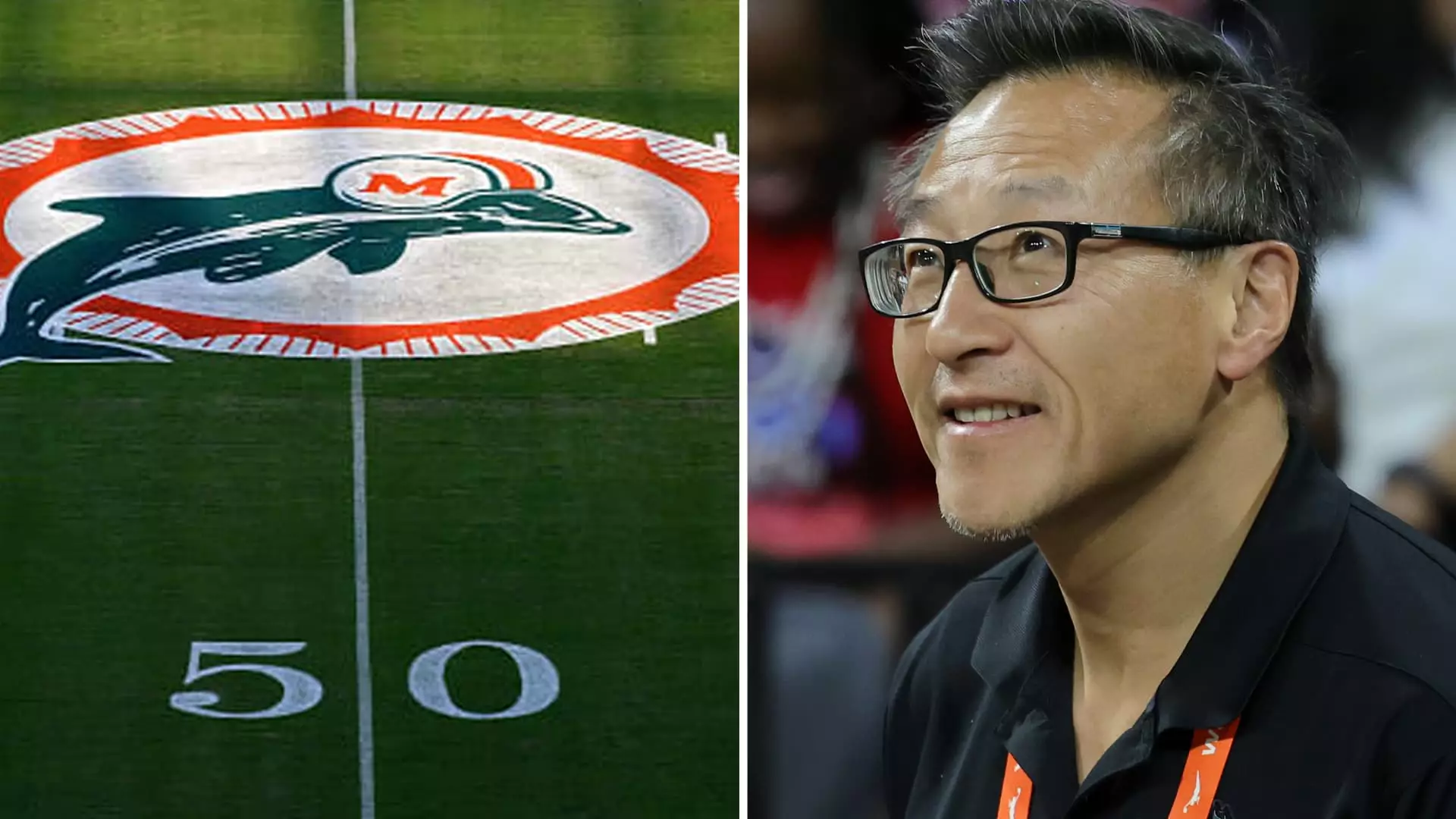The sports landscape is witnessing significant transformations, particularly in ownership structures and investment opportunities. A relevant case study is the ongoing discussions surrounding the Miami Dolphins, which illustrate a broader trend among sports franchises: the attraction of private equity investments. As noted recently, the Dolphins are engaged in advanced negotiations with Ares Management, a notable private equity firm, and billionaire Joe Tsai, the owner of the Brooklyn Nets. This situation underscores a pivotal shift where sports franchise owners are looking to diversify their portfolios, combining team ownership with operational rights to lucrative venues and events.
The potential sale of a minority stake in the Miami Dolphins exemplifies a growing trend among high-profile sports owners who are expanding their reach across multiple franchises. With the possibility of Ares Management acquiring a 10% stake in the Dolphins while Tsai explores purchasing an additional 3%, the implications of this movement are considerable. Notably, Tsai has integrated himself into several sectors of the sports industry, with a portfolio that includes not only NBA teams but also ownership in lacrosse and soccer franchises.
This trend towards multi-team ownership is not merely a strategy for personal enrichment; it suggests a reconfiguration of how sports franchises operate within the broader entertainment ecosystem. Owners are recognizing the financial benefits of controlling multiple revenue streams, such as ticket sales, merchandise, and venue operations—all of which can significantly bolster the bottom line. Notably, Stephen Ross, owner of the Dolphins, illustrates this model effectively as he also manages Hard Rock Stadium, enhancing his revenue potential from cross-promotional events like the Miami Grand Prix and Miami Open.
Financial Valuations and the NFL Landscape
The valuation of sports franchises has reached unprecedented heights, and the Dolphins are no exception. Currently valued at approximately $7.1 billion without including Hard Rock Stadium, the Dolphin’s overall financial ecosystem values it—and associated assets—at an impressive $8.1 billion. This remarkable figure speaks to the increased desirability of owning a stake in a professional sports franchise, further fueled by the NFL’s recent policy changes regarding private equity investment.
In August, the NFL approved new finance rules that permit selected private equity firms to invest up to a 10% stake in teams. This decisive move marks a significant shift for the NFL, which has historically been resistant to such financial arrangements. The influx of private equity is poised to alter the dynamics of ownership even more, making it a critical consideration for future buyers and current owners alike.
The strategic implications of the growing involvement of private equity in sports ownership cannot be overlooked. For owners like Ross, whose tenure began with the Dolphins in 2009 for $1.1 billion, the prospect of attracting private equity not only enhances the team’s marketability but also offers an opportunity for financial partners in an increasingly competitive market. The reported $10 billion offer he turned down underscores the significant and perhaps unprecedented valuations being placed on sports franchises today.
Ross’s decision to maintain control reflects a common concern among many franchise owners: ensuring the future of the team within their family or legacy. This perspective is vital, particularly as sports franchises increasingly become seen as assets rather than simply teams to be stewarded. The willingness of owners to bring in external investors also suggests a potential shift in attitudes towards team governance and shared decision-making in the future.
As the Miami Dolphins navigate these complex negotiations, industry watchers will closely observe the outcome and its ramifications for the NFL and the broader sports investment landscape. The trend of private equity entering sports is still in its infancy, and its continued evolution may influence the operational frameworks of franchises across various leagues.
Moreover, as billionaires like Joe Tsai expand their sports empires, the implications for competition and franchise management will be profound. The seamless integration of sports operations across multiple platforms—ranging from stadium management to event hosting—signals a future where efficiency and diversified investment are pivotal to maintaining relevance and profitability in the rapidly changing sports sector.
The Miami Dolphins’ discussions with Ares Management and Joe Tsai encapsulate a larger narrative about the direction of sports ownership and investment. As the landscape continues to evolve, stakeholders will need to adapt to remain competitive, highlighting the need for strategic foresight in this transforming world.

